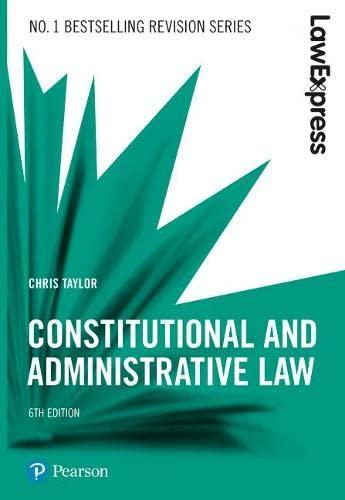Question
1. Consumer Rights. Best Buy, a national electronics retailer, offered a credit card that allowed users to earn reward points that could be redeemed for
1. Consumer Rights. Best Buy, a national electronics retailer, offered a credit card that allowed users to earn "reward points" that could be redeemed for discounts on Best Buy goods. After reading a newspaper advertisement for the card, Gary Davis applied for, and was given, a credit card. As part of the application process, he visited a Web page containing Frequently Asked Questions as well as terms and conditions for the card. He clicked on a button affirming that he understood the terms and conditions. When Davis received his card, it came with seven brochures about the card and the reward point program. As he read the brochures, he discovered that a $59 annual fee would be charged for the card. Davis went back to the Web pages he had visited and found a statement that the card "may" have an annual fee. Davis sued, claiming that the company did not adequately disclose the fee. Is it unethical for companies to put terms and conditions, especially terms that may cost the consumer money, in an electronic document that is too long to read on one screen? Why or why not? Assuming that the Best Buy credit-card materials were legally sufficient, discuss the ethical aspects of businesses strictly following the language of the law as opposed to following the intent of the law.
2. Standing. Jack and Maggie Turton bought a house in Jefferson County, Idaho, located directly across the street from a gravel pit. A few years later, the county converted the pit to a landfill. The landfill accepted many kinds of trash that cause harm to the environment, including major appliances, animal carcasses, containers with hazardous content warnings, leaking car batteries, and waste oil. The Turtons complained to the county, but the county did nothing. The Turtons then filed a lawsuit against the county alleging violations of federal environmental laws pertaining to groundwater contamination and other pollution. Do the Turtons have standing to sue? Why or why not?
3. Venue. Brandy Austin used powdered infant formula manufactured by Nestl USA, Inc., to feed her infant daughter. Austin claimed that a can of the formula was contaminated with Enterobacter sakazakii bacteria, causing severe injury to the infant. The bacteria can cause infections of the bloodstream and central nervous systemin particular, meningitis (inflammation of the tissue surrounding the brain or spinal cord). Austin filed an action against Nestl in Hennepin County District Court in Minnesota. Nestl argued for a change of venue because the alleged harm had occurred in South Carolina. Austin is a South Carolina resident and had given birth to her daughter in that state. Should the case be transferred to a South Carolina venue? Why or why not?
4. Motion for a New Trial. Washoe Medical Center, Inc., admitted Shirley Swisher for the treatment of a fractured pelvis. During her stay, Swisher suffered a fatal fall from her hospital bed. Gerald Parodi, the administrator of her estate, and others filed an action against Washoe seeking damages for the alleged lack of care in treating Swisher. During voir dire, when the plaintiffs' attorney returned a few minutes late from a break, the trial judge led the prospective jurors in a standing ovation. The judge joked with one of the prospective jurors, whom he had known in college, about his fitness to serve as a judge and personally endorsed another prospective juror's business. After the trial, the jury returned a verdict in favor of Washoe. The plaintiffs moved for a new trial, but the judge denied the motion. The plaintiffs then appealed, arguing that the tone set by the judge during voir dire prejudiced their right to a fair trial. Should the appellate court agree? Why or why not?
5. Discovery. Advance Technology Consultants, Inc. (ATC), contracted with RoadTrac, LLC, to provide software and client software systems for the products of global positioning satellite (GPS) technology being developed by RoadTrac. RoadTrac agreed to provide ATC with hardware with which ATC's software would interface. Problems soon arose, however. ATC claimed that RoadTrac's hardware was defective, making it difficult to develop the software. RoadTrac contended that its hardware was fully functional and that ATC had simply failed to provide supporting software. ATC told RoadTrac that it considered their contract terminated. RoadTrac filed a suit in a Georgia state court against ATC alleging breach of contract. During discovery RoadTrac requested ATC's customer lists and marketing procedures. ATC objected to providing this information because RoadTrac and ATC had become competitors in the GPS industry. Should a party to a lawsuit have to hand over its confidential business secrets as part of a discovery request? Why or why not? What limitations might a court consider imposing before requiring ATC to produce this material?
Step by Step Solution
There are 3 Steps involved in it
Step: 1

Get Instant Access to Expert-Tailored Solutions
See step-by-step solutions with expert insights and AI powered tools for academic success
Step: 2

Step: 3

Ace Your Homework with AI
Get the answers you need in no time with our AI-driven, step-by-step assistance
Get Started


